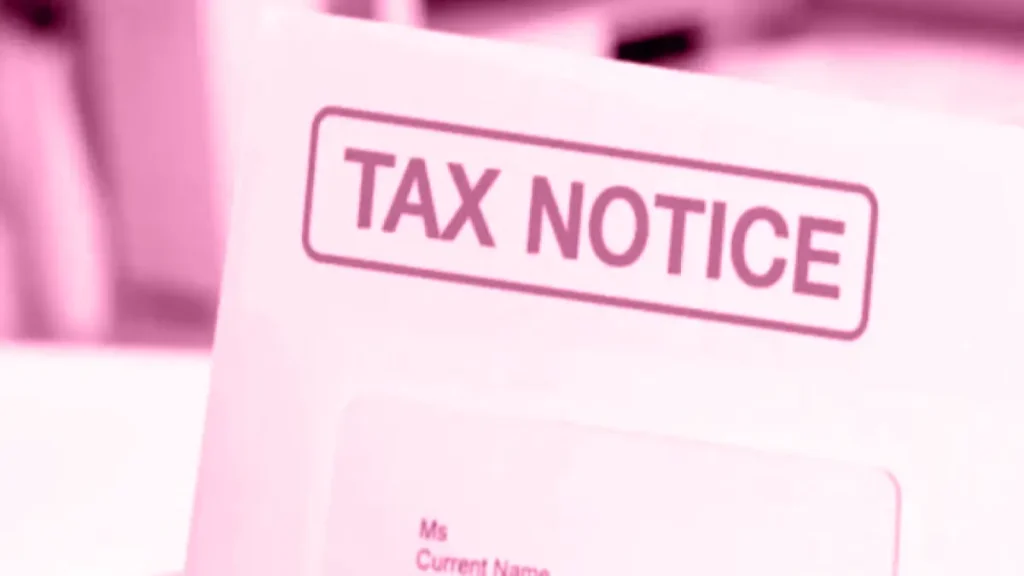The rapid growth of cryptocurrencies in recent times has shown a new world within the international financial system. Due to its rapidly growing technology loving population, India has emerged as a leader in this digital revolution. However, the rise of crypto adoption has brought about difficult challenges, particularly concerning taxation. The growing number of crypto transactions among both individuals and companies has raised concerns regarding tax evasion. This has encouraged the changing of regulatory frameworks and regulatory tools. This blog gives you a brief understanding of India’s Crypto Tax Evasion and the consequences and penalties associated with it.
About Tax Evasion
When individuals or organizations knowingly evade paying taxes to the government, they are committing tax evasion. There are numerous methods by which this may occur, including reporting less income, stating deductions more, or keeping funds in foreign accounts. It is essentially fooling the system to reduce or evade tax liability.
Tax evasion is a criminal offense that carries severe consequences, such as imprisonment, jail fines, and penalties. It is different from tax avoidance, which consists of reducing tax liability through legal means. Tax evasion weakens the tax system and wastes funds needed for public services like healthcare and education.
Consequences of Failing to Report Crypto on Tax Returns
Further diving into India’s Crypto Tax Evasion, Under sections 148/148A of the Income Tax Act, the ITD may issue a notice if you neglect to report cryptocurrency income on your tax return. This notice, which is known as a “notice for income escaping assessment,” is issued whenever an Income Tax Officer (ITO) has likely a cause to believe that a taxpayer has failed to reveal their correct income, and as a result, has not given their complete tax obligation.
Firstly, Before issuing a notice under section 148, the ITO shall deliver a 148A notice to the taxpayer. The taxpayer has the opportunity to provide an explanation or argument against the issuance of a Section 148 notice during this initial contact.
If tax authorities have reasonable grounds to suspect that you have failed to report crypto or any other form of income, they may issue a notice no later than three years after the conclusion of the relevant assessment year. Nevertheless, in the case where the undisclosed income goes beyond Rs. 50 lakhs, the deadline to issue the notice is extended to a maximum of ten years from the conclusion of the applicable assessment year.
Under Section 147 of the Income Tax Act, the ITO will reevaluate your income following the issuance of a notice.
Penalties for Crypto Tax Evasion
The penalties for Crypto Tax Evasion in India are based on the amount of tax evaded and the gravity of the offense; however, for a summary:
- In India, the consequences for failing to reveal or incorrectly reveal income vary from 50% to 200% forfeiture of the tax owed, in addition to a possible imprisonment term of up to seven years.
- A late filing of an income tax return may incur a 1% monthly interest charge and late penalties of RS. 1,000 to RS. 5,000, and a prison term of up to seven years.
- Neglecting to deduct TDS or failing to remit TDS to the government after deduction will incur late fees and interest charges.
- Noncompliance with the TDS return filing deadline will incur a daily late fee of RS. 200.
How Does the Income Tax Department Keep Tabs on Your Cryptocurrencies?
The Income Tax Department (ITD) has been collecting information from Indian exchanges, even before the implementation of Tax Deducted at Source (TDS) in the 2022 budget. TDS aids the Income Tax Department in monitoring your cryptocurrency investments at the moment of purchase. It encompasses all crypto dealings, whether involving NFTs, stablecoins, or tokens.
The TDS reporting regulations ensure that the ITD not only possesses transaction records from Indian exchanges but also from peer-to-peer (P2P) transactions and transactions done on international exchanges. Consequently, numerous investors have already received notices due to their failure to report crypto income or their attempts to evade taxes on crypto earnings for the financial years 2018-19 and 2019-20.
Consequences of Past Crypto Tax Evasion
If you forgot to include your cryptocurrency earnings in your previous tax return, there are a few steps you can take, but you might still face penalties. First, you can update your return using section 139(8A) in Form ITR-U along with the relevant ITR form. However, you can only do this if you made taxable crypto gains during that financial year. If you had a net loss, you can’t update your return because losses aren’t deductible.
Note that the deadline to amend your tax return is 24 months after the conclusion of the tax year. For instance, the last date for updating your return for the 2024-25 tax year (FY 2023-24) is March 31, 2027. Even though there is no guarantee that penalties will not be incurred. If you update your tax return, they will likely be less severe than if tax authorities discover the difference freely.
Update your ITR-U within twelve months of the end of the tax year to avoid incurring a penalty equal to twenty-five percent of the amount owed plus interest. After 12 months but before 24 months, the penalty jumps to 50% of the outstanding balance, in addition to accrued interest.
India’s Crypto Tax Evasion has many complexities in it. These complexities are not easy for any normal individual who invests or trades in cryptocurrency. To help you with this topic of crypto tax evasion Catax is always there to help you.
How Catax helps you
Catax plays a significant role in simplifying and handling cryptocurrency taxes. With good knowledge of tax regulations worldwide, they provide customized tax solutions. Emphasizing client education and data security, Catax stands out by blending advanced technology with personalized service. For those looking for crypto tax issues, Catax offers clarity and support, easing the stress of tax obligations.
Catax eases automated accounting, documentation, and taxation. Catax gives you precise tax information, which aids in reducing tax obligations, and provides expert assistance. Allowing investors and companies to concentrate on their core skills while maintaining compliance and tax objectives.
Each member of the Catax team, from visionary founders to skilled professionals, shares a commitment to making a meaningful impact. Furthermore, we prioritize humanizing the tax landscape, believing that behind every financial decision are individuals with unique goals and objectives.
Explore:
FAQs on India’s Crypto Tax Evasion
Tax evasion involves knowingly evading taxes through methods like reporting less income, stating deductions more, or hiding funds in foreign accounts. It’s illegal and different from legal tax avoidance.
In India, tax evasion can lead to imprisonment, jail fines, and penalties, changing the allocation of government funds toward public services.
The ITD issues notices if there’s likely a cause to believe a taxpayer has not accurately revealed their income, potentially reevaluating income after issuing a notice.
Penalties range from 50% to 200% of the evaded tax amount, along with possible imprisonment of up to seven years for failing to reveal or show income.
Through TDS reporting regulations and data collection from Indian exchanges, the ITD keeps track of crypto investments. Including P2P transactions and those on international exchanges.
You can update your return using section 139(8A) in Form ITR-U along with the relevant ITR form, within 24 months after the conclusion of the tax year, to potentially reduce penalties.
Catax simplifies cryptocurrency tax management with automated accounting, documentation, and expert assistance. Helping investors and companies maintain compliance and improve tax objectives.



